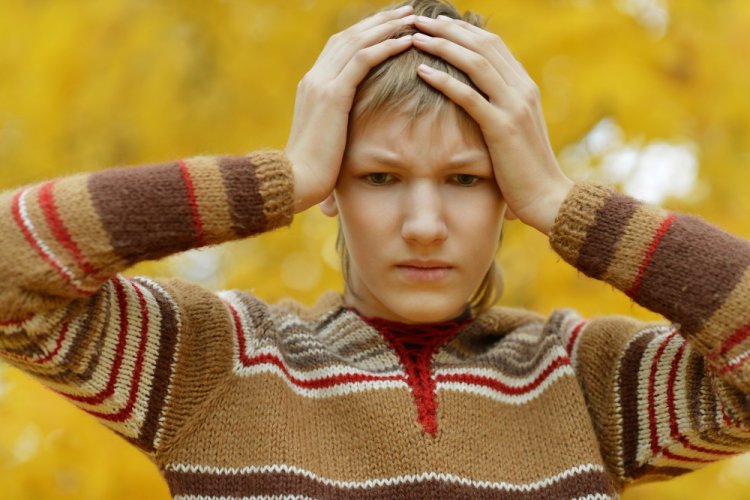Navigating the Darkness: Understanding Major Depression and Its Impact
Major depression, also known as major depressive disorder (MDD), is a prevalent and debilitating mental health condition that affects millions of people worldwide. Despite its prevalence, major depression remains widely misunderstood. In this article, we delve into the various facets of major depression, exploring its types, symptoms, underlying causes, and available treatment options to provide a comprehensive understanding of this complex disorder.

Types of Major Depression
Seasonal Affective Disorder (Seasonal Depression)
(SAD) is a subtype of major depression that follows a seasonal pattern, typically occurring during the fall and winter months when daylight hours are shorter. Individuals with SAD may experience symptoms such as persistent sadness, low energy levels, changes in sleep patterns, weight gain, and loss of interest in activities they once enjoyed. Treatment for SAD often involves light therapy, where individuals are exposed to bright artificial light to simulate natural sunlight and regulate their circadian rhythms.
Perinatal and Postpartum Depression
Perinatal depression refers to depression that occurs during pregnancy, while postpartum depression occurs after childbirth. Both conditions are characterized by symptoms such as persistent feelings of sadness, anxiety, irritability, fatigue, changes in appetite, and difficulty bonding with the baby. Hormonal fluctuations, sleep deprivation, and the stress of new parenthood can contribute to the development of perinatal and postpartum depression. Treatment may involve a combination of therapy, medication, and support groups tailored to the needs of new mothers.
Atypical Depression
Atypical depression is a subtype of major depression characterized by mood reactivity, meaning that individuals experience temporary mood lifts in response to positive events. Despite this, individuals with atypical depression still experience symptoms such as increased appetite, weight gain, excessive sleep, fatigue, and a profound sense of rejection sensitivity. Treatment options for atypical depression may include psychotherapy, antidepressant medication, and lifestyle modifications to improve overall well-being.
Symptoms of Major Depression
Major depression can manifest with a wide range of symptoms that vary in severity and duration. Common symptoms include persistent feelings of sadness, hopelessness, irritability, loss of interest or pleasure in activities, changes in appetite or weight, disturbances in sleep patterns, fatigue or loss of energy, feelings of worthlessness or guilt, difficulty concentrating or making decisions, and recurrent thoughts of death or suicide. It's essential to note that not everyone with major depression will experience all of these symptoms, and symptoms may fluctuate over time.
Causes of Major Depression
The exact causes of major depression are multifactorial and not fully understood. However, several factors are believed to contribute to its development, including:
- Biological Factors
- Genetic Predisposition
- Environmental Factors
- Hormonal Changes
- Medical Conditions
Treatment Options for Major Depression
Effective treatment for major depression often involves a combination of psychotherapy, medication, and lifestyle modifications. Treatment plans are tailored to the individual's specific needs and may evolve over time based on treatment response and symptom severity.
Psychotherapy
Various forms of psychotherapy, such as cognitive-behavioral therapy (CBT), interpersonal therapy (IPT), and psychodynamic therapy, have been shown to be effective in treating major depression. These therapies aim to help individuals identify and challenge negative thought patterns, develop coping skills, improve interpersonal relationships, and address underlying emotional issues contributing to their depression.
Medication
Antidepressant medications, such as selective serotonin reuptake inhibitors (SSRIs), serotonin-norepinephrine reuptake inhibitors (SNRIs), tricyclic antidepressants (TCAs), and monoamine oxidase inhibitors (MAOIs), are commonly prescribed to alleviate symptoms of major depression. These medications work by increasing the levels of neurotransmitters in the brain, thereby improving mood and reducing depressive symptoms. It may take several weeks for antidepressants to take full effect, and individuals may need to try different medications or dosage adjustments to find the most effective treatment.
Electroconvulsive Therapy (ECT)
In cases of severe, treatment-resistant depression, electroconvulsive therapy (ECT) may be recommended. ECT involves the administration of electrical currents to the brain, inducing a controlled seizure. Although the exact mechanism of action is not fully understood, ECT has been shown to be highly effective in relieving symptoms of depression, particularly in individuals who have not responded to other treatments or are at risk of suicide.
Transcranial Magnetic Stimulation (TMS)
Transcranial magnetic stimulation (TMS) is a non-invasive procedure that uses magnetic fields to stimulate nerve cells in the brain regions implicated in depression. TMS is typically reserved for individuals who have not responded to antidepressant medication or cannot tolerate its side effects.
Lifestyle Modifications
Engaging in regular exercise, maintaining a healthy diet, getting an adequate amount of sleep, reducing stress, avoiding alcohol and illicit drugs, and participating in social activities can all contribute to improved mood and overall well-being in individuals with major depression.
In conclusion, Major depression is a complex and multifaceted mental health condition that can have profound effects on individuals' lives. Understanding the different types, symptoms, underlying causes, and available treatment options is crucial for effectively managing and treating this debilitating disorder. If you or someone you know is experiencing symptoms of major depression, it's essential to seek help from a qualified mental health professional to receive appropriate diagnosis, treatment, and support. With the right interventions and support, many individuals with major depression can experience significant improvement in their symptoms and quality of life.
#MajorDepression #MentalHealthAwareness #DepressionSupport #EndTheStigma #TreatmentOptions #TherapyWorks #Antidepressants #LifestyleChanges #YouAreNotAlone #MentalWellness #SeekHelp #DepressionRecovery #SupportSystem #MentalHealthMatters #BreakTheSilence #HealingJourney #SelfCareIsKey #MindfulnessMatters #HealthyMindHealthyLife #HopeAndHealing
Disclaimer:
The information provided in this article is for educational purposes only and should not be considered medical advice. If you have any health concerns or are experiencing symptoms, it is important to consult with a healthcare professional, such as a doctor or clinic, for proper diagnosis and treatment. Always seek the advice of your doctor or other qualified health provider with any questions you may have regarding a medical condition. Do not disregard professional medical advice or delay in seeking it because of something you have read in this article.
What's Your Reaction?





















